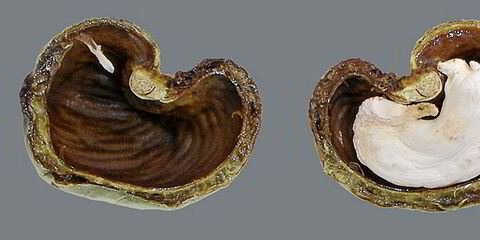Law firm Clyde & Co has overhauled its rules on handling shipping clients and their money as it faces its second major fine in seven years for flaws in its anti-money laundering checks.
The firm on Tuesday publicly admitted failures in client background checks aimed at preventing law firms being used to recycle dirty money but pointed the finger at a former senior partner for ignoring advice from its specialist compliance unit.
Clyde and the lawyer, Ed Mills-Webb, face large fines after accepting the failings throughout a four-year relationship with a shipping business identified only as Company A at a week-long disciplinary hearing in London.
The hearing has been told that Clyde accepts it should pay a minimum £100,000 ($127,000) fine and Mills-Webb, a former head of the company’s global marine practice, has admitted rule breaches that would result in him paying at least £15,000.
The company was fined £50,000 in 2017 after admitting accounting and anti-money laundering breaches, and one of its specialists was fined £10,000.
‘Reputable’
It introduced changes as a result of that case but they were not in place in 2014 when Clyde started talks with Company A about the law firm holding money in an escrow account for ship purchases.
The non-UK based company has not been named but its business model was based on the purchase of ships for cash before selling them on for scrap, the tribunal has been told.
Problems included failing to properly scrutinise shareholders, special purpose vehicles and the company’s owner, identified only as Person A, before nearly $50m passed through Clyde accounts.
The firm worked on more than 30 transactions linked to the overseas company but relied on six-year-old financial information during their business relationship from July 2014 to January 2019 that was never updated, the hearing of the Solicitors Disciplinary Tribunal was told.
Tribunal documents identify a number of transactions including ship purchase deals involving companies set up specially in Liberia and the Caribbean island of Nevis. Another transaction was linked to legal action in early 2016 about a disputed management agreement involving some of the vessels.
There is no evidence of money-laundering taking place, as Company A was a “substantial and reputable company, person A was a reputable businessman”, according to documents submitted to the tribunal by Clyde’s legal team.
“Whilst a risk of money laundering cannot be ruled out, there is no evidence to support such a conclusion in fact,” it said.
“The firm apologises for and very much regrets its failings. The firm has acknowledged the need to, and has worked to, strengthen its systems and processes.”
The improvements have included increasing the level of scrutiny over “high-risk” work including that involving escrow arrangements linked to ship sales and purchases.
It has also provided bespoke anti-money laundering training to case-handlers in ship finance and other high-risk areas.
The tribunal will this week decide on the level of punishment for the law firm and Mills-Webb.
Clyde, which made global revenues of £259m in the last financial year, warned that a sizeable fine will have a “material adverse impact” on the firm.
“There was not an absence or total failure of systems and processes; rather the systems and processes existed but failed to operate as effectively as they should; whilst opportunities for further follow up were missed,” said lawyers for the firm.
The investigation started after Clyde reported the breaches to the industry regulator in 2019, the same year that Mills-Webb was suspended.
He quit that year and is listed as a consultant at Preston Turnbull, a firm set up by a group of four former Clyde partners.
Read more
- Ince’s global head of marine projects decamps to Stephenson Harwood
- Hill Dickinson takes on Clyde & Co casualty expert Martin Hall
- Conor Warde joins law firm CMS as a partner in Hong Kong
- Addleshaw Goddard’s Singapore managing partner Ton van den Bosch jumps over to Clyde & Co
- Clyde & Co partner Andrew Bicknell relocates back to Singapore





